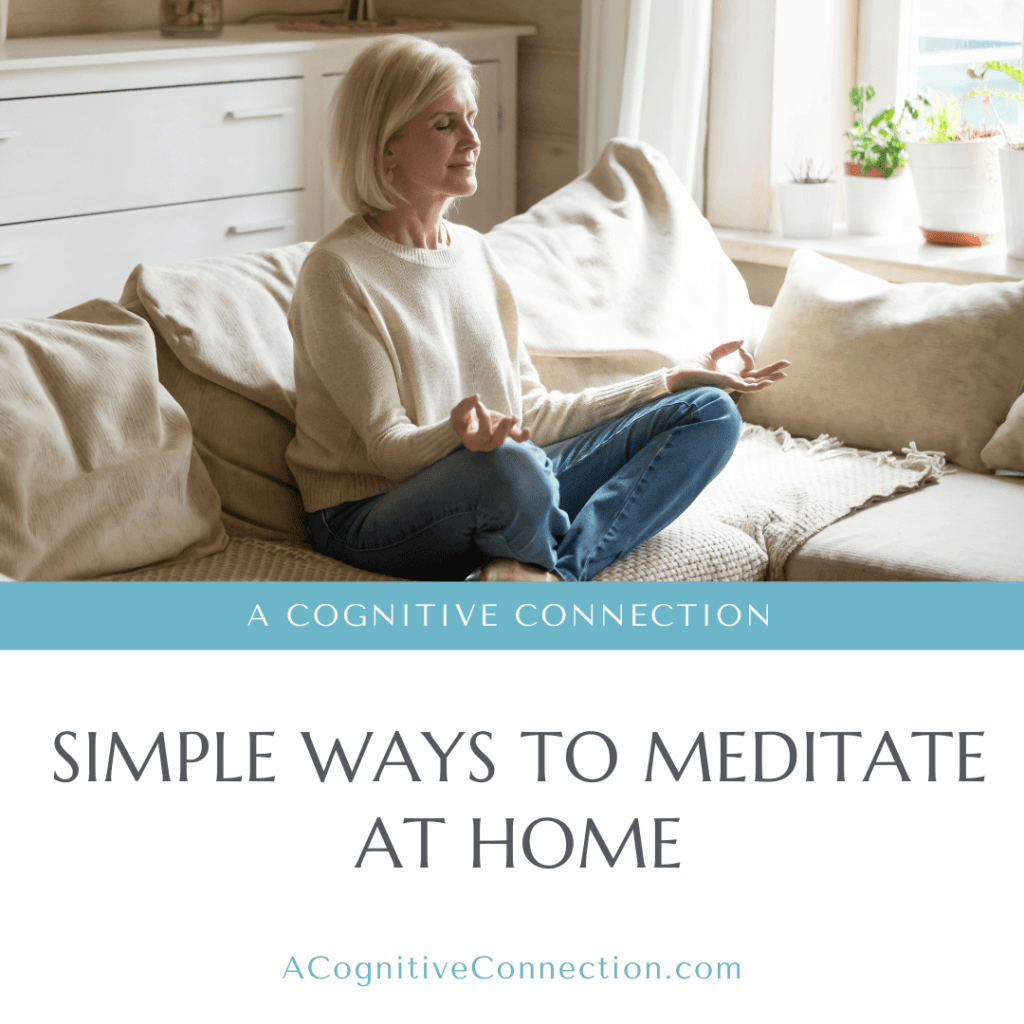Meditation is a wonderful way to achieve mental clarity and improve your physical well-being. If you’re interested in the benefits of practicing meditation but don’t know where to begin, don’t worry. In the beginning, many people feel lost and a bit unsure of how to meditate correctly. Meditation is entirely achievable, even if you have no prior experience! Meditation is a simple practice but requires intentionality to be effective in addressing your mental wellness.
As a behavioral center in Colorado Springs, A Cognitive Connection uses various treatment tools to give you a well-rounded and effective solution for your mental health. Meditation has many benefits and is one tool we frequently integrate into our clients’ treatment plans. Keep reading to learn some simple and effective ways to meditate at home!
What is Meditation?
Meditation has many different interpretations and styles, but the basic concept is the intentional focus on your thoughts, body, and state of awareness. Mediation is a set of practices that has a consciousness-changing technique aimed at improving physiological health.
Different cultures have integrated meditation into their daily practices for thousands of years. Nearly all religions utilize some sort of meditation method within their practice. Plus, people can use meditation as a psychotherapeutic technique.
There are two main types of meditation: concentrative and mindfulness. However, there are other meditation methods that individuals practice. Concentrative meditation focuses on a single thought while the rest of the world is blurred in the background to reach a heightened state of being. On the other hand, mindfulness meditation involves being in an open, accepting state while becoming extremely aware of the moment.
Impacts of Meditation
Being in a conscious state of awareness and openness has extreme benefits for changing the thought patterns within your brain. Practicing meditation intentionally and consistently has been proven to change the neural pathways within brains, supporting increased focus, attention, and self-reflection. Meditation benefits individuals with stress and headaches to those with developmental disabilities. Some benefits of meditation include:
- Improving stress through diaphragmatic breathing that calms the sympathetic nervous system.
- Managing anxiety by focusing on positivity and acceptance.
- Improving feelings of connectedness and kindness.
- Improving self-awareness.
- Improving working memory and fluid intelligence.
Meditation for Beginners
We all start somewhere when it comes to the practice of meditation, so do not get discouraged if you feel your mind wandering or are extremely tired in the beginning. You must give yourself time to build your endurance and form new habits. Follow the steps below when you first start meditating.
- Sit Down
- Sit in a quiet, calm place that you can use each time you practice, and ensure you feel comfortable and safe.
- Set A Time Limit
- Start with a short time and do not exceed your set time; a good place to start is 5 minutes.
- Notice Your Body
- Take time to notice how your body feels during your practice; do not change or judge how you feel, just take the time to notice.
- Feel Your Breath
- Breathe in through your nose and slowly exhale through your mouth.
- Notice If Your Mind Wanders
- See where your mind wanders and notice which thoughts are coming and going. Then, shift your attention back to your breath.
- Close With Kindness
- Thank yourself for your intentional practice when you are done and do not judge how you spent your time. Notice how your body and thoughts have changed during your meditation.
Tips for Meditation Practice
When you first start meditating, you have yet to develop the skills or habits needed to benefit optimally. The faster you can make meditation part of your routine, the easier it will be to see the results. Some tips to follow when meditating include:
- Set Your Goals & Intentions
- If you have the goal of practicing one day a week, set a timer and block the time out on your calendar. You must make your practice a priority, but do not start with too much at once. Instead, slowly build to where you want to be.
- Perfection Is Not The Goal
- If you start with the expectation that you will be perfect in your practice, you will give up easily. Do not start with perfection as the goal, but instead be focused on the goal of completing your practice consistently.
- Find Your Space
- Having the same space to practice each time will give you a sense of comfort, security, and peace.
- Try Different Meditation Techniques
- You do not have to use the same techniques each time you practice. As a beginner, you may want to try a guided meditation to help give you a solid foundation.
Improve Your Mental Health With A Cognitive Connection
As a center focused on cognitive and behavioral brain function, A Cognitive Connection understands the importance of being cognizant of your mental health. Meditation is one of the most impactful tools you can use to help improve your mental well-being, and we’re here to support you through your meditation journey Contact the helpful team at A Cognitive Connection to learn about different tools you can use to improve your well-being.


